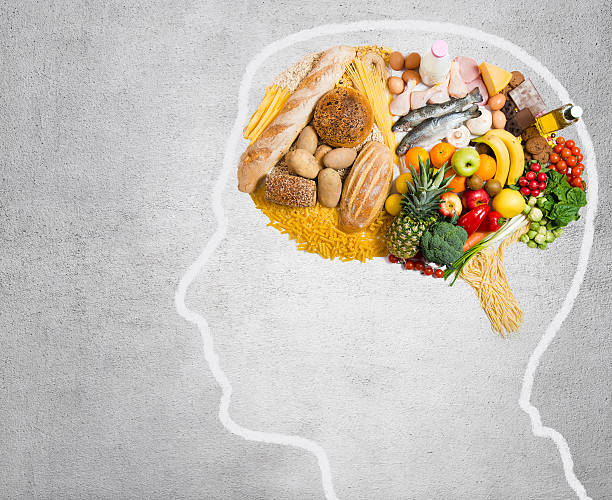Diet & Nutrition
The Secrets to Optimizing Nutrient Absorption
Unlocking the full potential of the nutrients we ingest is critical to maintaining good health and well-being. However, the voyage from plate to absorption may be complicated, with numerous factors influencing how well our bodies use the critical vitamins, minerals, and other nutrients we consume. In this article, we will look at the science behind nutrient absorption and practical ways for improving it. From maximizing digestive health to strategically combining meals and leveraging cooking techniques, we’ll reveal a variety of tips and tricks to help you increase nutrient absorption and make the most of your diet. Understanding how to promote nutrient absorption can be a useful tool in your wellness armory, whether you want to boost energy, support immunological function, or improve general health.

Understanding Nutrient Absorption
Nutrient absorption is an important process that determines how effectively your body uses the nutrients it consumes. It is the process by which nutrients in meals are absorbed by the bloodstream and transferred to cells throughout the body, where they are used for diverse purposes. Here’s what you should understand about vitamin absorption:
The Role of Digestive System
Nutrient absorption is critically dependent on the digestive system. It breaks down food into tiny molecules that the body can absorb. The process begins in the mouth, when food is chewed and combined with saliva. The stomach subsequently secretes acid and enzymes to further digest the food. Finally, the small intestine absorbs the nutrients and transports them to the bloodstream.
Types of Nutrients and Their Absorption
Nutrients are classified as either macronutrients or micronutrients. Macronutrients are carbohydrates, proteins, and lipids that are required in higher quantities. Micronutrients comprise vitamins and minerals, which are required in tiny quantities. The two types of nutrients are absorbed differently.
Carbohydrates are converted into glucose and absorbed in the small intestine. Proteins are degraded into amino acids and absorbed in the small intestine. Fats are broken down into fatty acids and glycerol, which are absorbed in the small intestine.
The absorption of vitamins and minerals varies according on their type. Water-soluble vitamins, including vitamin C and B vitamins, are absorbed in the small intestine and delivered directly to the liver. Fat-soluble vitamins, such as vitamins A, D, E, and K, are absorbed in the small intestine alongside dietary fat and delivered to the liver and other tissues via chylomicrons.

Optimizing Diet for Better Absorption
Diet influences nutrient absorption significantly. The subsections of this article that follow describe ways to improve your diet for optimum nutrient absorption.
Balancing Macronutrients
Macronutrient balance is critical for optimal micronutrient absorption. A diet high in protein, healthy fats, and carbohydrates can help with nutrient absorption. Protein promotes zinc absorption, whereas healthy fats promote fat-soluble vitamin absorption. Carbohydrates, on the other hand, serve to manage blood sugar levels, which are required for efficient amino acid absorption.
Importance of Micronutrients
Micronutrients, such as vitamins and minerals, are required for the body’s healthy operation. A diet rich in fruits, vegetables, legumes, nuts, seeds, and whole grains can help in micronutrient absorption. For example, vitamin C aids in the absorption of plant-based iron, whereas vitamin A aids in the absorption of calcium.
Food Pairing and Timing
Food matching and time can also influence nutrient absorption. Combining meals high in vitamin C with plant-based iron can assist enhance iron absorption. For example, eating oranges or tomatoes alongside greens or broccoli can assist boost iron absorption. Combining dairy products with vitamin D-rich diets can also assist enhance calcium absorption. Timing is also important, as combining food and supplements can increase absorption.
To summarize, optimizing the diet for optimum nutrient absorption entails balancing macronutrients, eating micronutrient-rich foods, and matching foods for maximum absorption. Individuals who follow these principles can ensure that they get the most out of their diet while also enhancing their overall health.

Lifestyle Factors Influencing Absorption
Many lifestyle factors can influence the body’s ability to absorb nutrients. Here are two critical ones to consider:
Hydration and Its Effects
Hydration is one of the most critical elements influencing nutrient absorption. When the body is dehydrated, it may difficult to absorb nutrients adequately. This is because water is required for the body to digest meals and carry nutrients to the cells. To maintain adequate nutrition absorption, drink lots of water throughout the day.
In addition to water, herbal teas can improve nutrient absorption. Some drinks, such as green tea, can assist to enhance metabolism and energy levels. This can help the body absorb nutrients more effectively. However, adding sugar to tea is not recommended because it can reduce nutritional absorption.
Impact of Exercise and Stress
Exercise is another key lifestyle component that influences nutrition absorption. Regular exercise helps enhance digestion and boost the body’s ability to absorb nutrients. This is because exercise can boost blood flow to the digestive system, thereby improving food delivery to cells.
However, stress can have a deleterious impact on nutrient absorption. When the body is stressed, it may release hormones that interfere with digestion and nutritional absorption. As a result, it is critical to manage stress using strategies such as meditation, yoga, or deep breathing exercises.
To summarize, lifestyle factors such as water, exercise, and stress can all have a big impact on nutritional absorption. Making simple modifications to your daily routine, such as drinking more water or using stress-reduction strategies, can assist to improve your body’s ability to absorb important nutrients.
Conclusion
To summarize, increasing nutrient absorption is critical to realizing the full potential of the foods we eat and reaping the health benefits. Individuals can improve their body’s ability to absorb critical vitamins, minerals, and other nutrients by following the measures suggested in this article, such as maintaining digestive health, eating nutrient-dense foods, and using smart cooking practices. Whether you want to boost your energy, strengthen your immune system, or address specific health issues, concentrating on nutrient absorption can be an effective addition to a well-balanced diet and overall wellness regimen. Making informed decisions and adopting healthy habits will enable you to nurture your body more effectively and live with vibrant health and vigor.


